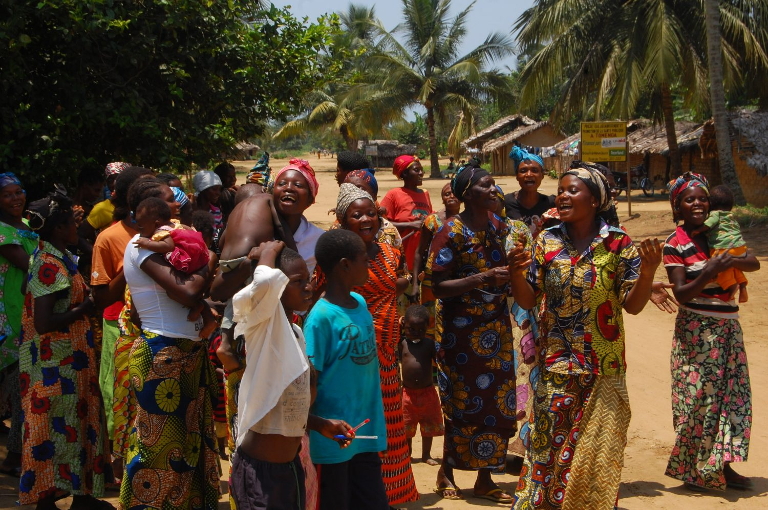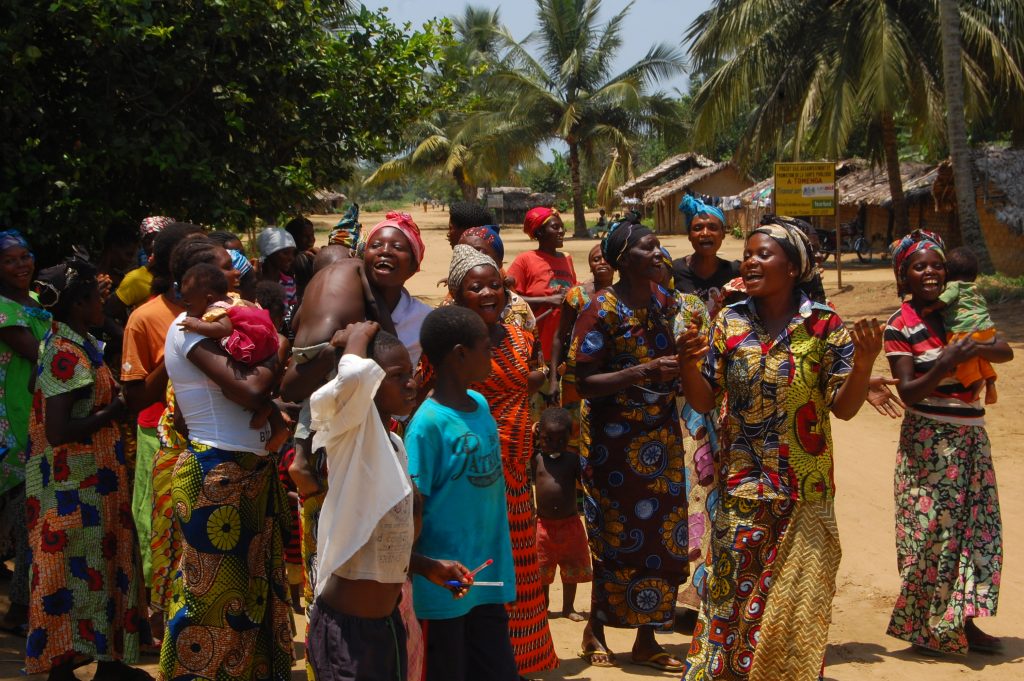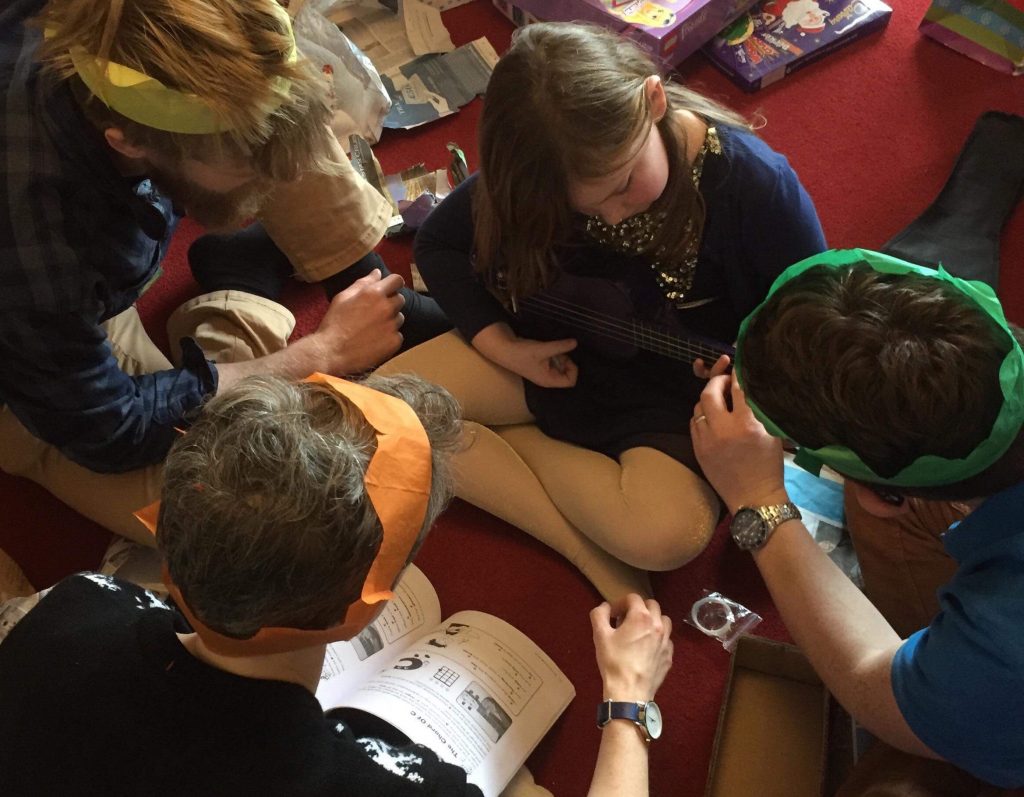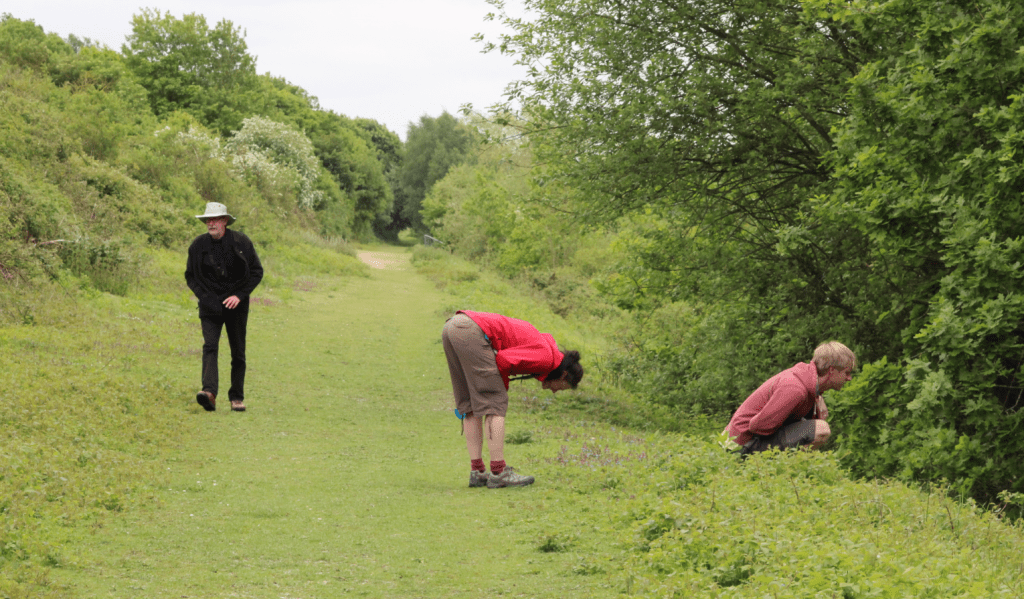This is the fourth in a series of blogs from our guest editor Kate Heath, an ex-humanitarian worker now based in Paris – exploring how to have constructive conversations about climate change.
In last week’s blog, I looked at how the most constructive starting point from which to discuss climate change and energy issues is with what people value, and understanding and affirming this. In this week’s blog I want to share with you more on how to identify shared values that resonate between us – between the big, broad us.
For those of you interested in starting and maintaining inclusive conversations around these issues, I want to share a bit more on how I’ve made use of the guidance available to help find common ground with people with differing political and religious views from which to explore these issues. I found the resources listed at the bottom of this post incredibly useful and empowering in moulding how I talk about these topics into a more inclusive shape. They flag how easy it is to unintentionally exclude others and mire a conversation in contention, if we adopt terms traditionally used – when in fact people from many differing perspectives of course have every reason to care about this and join together to reorient towards more sustainable pathways: if only the conversation can be opened up to allow us all to engage.
I realise of course I can’t be all things to all people (shucks). I carry with me my background, my political opinions, my spiritual beliefs, even the fact I studied Environmental Sciences: these will inevitably define and demarcate me to some extent when I talk with others, as we each instinctively decide whether we’re ‘like’ each other (and then, inevitably, to what extent our opinions and perspectives might be considered trustworthy or of pertinence). Side note: One thing I was really shocked to discover was how off-putting and exclusionary some of the ‘green’ terms were that I’d grown up on – eco, save the planet, natural world, environmental and ‘green’ itself – and how there’s a desperate need to ‘reclaim’ the issue of climate change and energy from being pigeon-holed as an environmental one. As Corner and Clarke put it in ‘Talking Climate’:
“Climate change is not only or even mostly about ‘the environment’. But the tropes and cultural contours of environmentalism have defined climate change in the public mind. Catalysing new voices means widening the social reality of climate change. The challenge is not to ‘turn’ the vast array of un-engaged social groups into environmentalists, but to build a new sense of ownership among these disparate groups.
The resources below helped me realise, however, that I do share concerns and values related to climate change and energy issues that transcend political and religious differences. And, crucially, that focussing on these shared values in how I talk about my concerns and thoughts and fears could help in having more constructive conversations beyond just the realms of my natural in-group. Interestingly, the Faith Symposium work and other studies indicate that political identity currently has more influence on attitudes regarding these issues than faith identity. There’s much work out there that’s looked at which values relating to climate change chime with people across both the political left and right. As I sit on the left, I’ve looked particularly at the guidance on engaging constructively with those on the right, who feature amongst my family, my friends and within my wider group. I went through this guidance, and picked out those things that resonated with me too. Simple as that. And then have focused on those when talking with others.
Tapping into deep, ‘sacred’ values: deeply held cultural convictions which enable us to make sacrifices in the short term for the longer term collective good e.g. wishing a better future for your children, looking after your parents, desiring good health…women and their children in Maniema, DR Congo, celebrate being awarded ‘Healthy Village’ status after making significant improvements to water, sanitation and hygiene conditions. Credit: Tom Heath
There are major overlaps in what different groups deeply value, when we get down to it: family, health, a better life for our children, thriving communities. OK, not surprising – these are pretty general. But even when you expand further outwards, I discovered there’s much shared ground to be found. Whilst of course there are differences in how we might address an issue, from amongst the core centre-right principles, values and cherished concepts identified (see particularly pages 5-12 of the Public Engagement doc), there were plenty that also resonated with me, e.g.:
- intergenerational duty
- integrity
- conscientiousness
- sacrifice
- civic responsibility
- aspiration to good health and wellbeing
- not living beyond our means
- a sense of balance
- efficiency
- simplicity
I was struck by how many of these ‘cherished concepts’ genuinely struck a chord with my deep longings. Things I miss dreadfully in the rhythms we’ve become familiar with living and working with as humanitarians, and have somehow carried with us even though we’re no longer out in the field. Tied up in the pace of work and immediate demands and communications technology, lapped by the constant attentional tug of social media, away from treasured friends and family and still without a real rooted community as a permanent address remains elusive: I long for more family time, more simplicity, fewer technology-assaulted moments.
Shared values: I found many of the things traditionally valued by those on the political right also resonate with me e.g. inter-generational duty, family time, simplicity. Here, my brother, husband and I all chip in to help my niece take her first steps playing the ukulele. Long evenings bashing out Bruce Springsteen, Dire Straits and Elvis on the family guitars was a favourite entertainment when we were growing up. And, on reflection, relatively low-carbon… Choosing to focus on shared values in discussions around climate change and energy matters can help to avoid getting stuck in contentious, politically-charged ruts. Credit: Laura Anderson
Looking at these concepts even helped me clarify how I wanted to approach systematically reducing our household emissions: as an overall rebalancing,of so many things that were out of whack, not just from a carbon perspective. Refinding the breath in our lives for family and community and health; just sheer people – beloveds I’d managed to neglect in acting as a humanitarian elsewhere. Man – I could talk, and listen, and empathise with others about that till the cows come home!
Deep, simple, low-carbon satisfaction: in recent years my folks have developed an appreciation of butterflies, understanding their habits and habitats and slowing down and looking closely enough to spot them. What adventures can you suggest, I asked them one weekend when we came to visit? Searching for a small brown insect. Oh it was pleasing, on so many levels of connection. Credit: Stephanie Anderson
And a note on words: good to be deliberate about, so you don’t find you’ve accidentally built a fortress instead of a forum with your conversational building blocks. Sure, it won’t float EVERYONE’s boat, but there’s language that people are more likely to warm to from across all the major political leanings and faith groups. It was a no-brainer to choose to pick these out and make them part of my vocab on the issue, rather than drawing out any old term that feels comfortable to me but could repel others. I found the table listing positive language to use really useful (see pages 16-17 in the Public Engagement resource): I picked out words which also felt natural for me, and just started using them e.g.
- the notion of ‘protection’
- striking a sensible balance
- being structured and disciplined
- resolving to take responsibility
- exercising control and making informed choices
- conscientious action to reduce my footprint
- and again – simplicity
Overall, then, I’ve realised how approaching conversations on this involves the same commitment to cross-cultural sensitivity that I have in working as a humanitarian. In the era in which we now find ourselves, where we inevitably carry the political baggage generated through the last decades of campaigning, which have generated a distinct polarisation on these issues, taking just a little more care and being more considered about how I talk is anything but artificial. Don’t say ‘fight disease’ in post-conflict countries – it won’t win you any friends. Absolutely. Don’t use ‘eco/green/climate justice/save the planet/natural world/greed/revolution’ in Europe. OK. Just me in dungarees rather than jeans. No probs. I love a good pair of dungarees.
Simplicity: This Christmas, amidst the piles of presents inundating my niece, my brother and I reminisced about the (lower-impact) Christmas present-giving of our childhoods, when we used to make simple edible or eminently treasurable treasures for each other. My mum still has one of the painted gnomes we made, 28 years later. With all the other actions I’ve taken to reduce my annual footprint, Ccnsumption now contributes the biggest portion of my remaining 4.5 tonnes. A big ole 40%, which has the ripest opportunities for further rebalancing!
Useful Resources
- Public Engagement with Climate Change post-Brexit – A Centre Right Perspective, Climate Outreach, 2017 (also earlier ‘New Conversation’ resources from 2016 and 2013);
- Faith and Climate Change – Talking with People of 5 Major Faiths, Climate Outreach, 2016
- And the Scottish Government’s practical guide for running more formalised discussions, informed by Climate Outreach’s research









